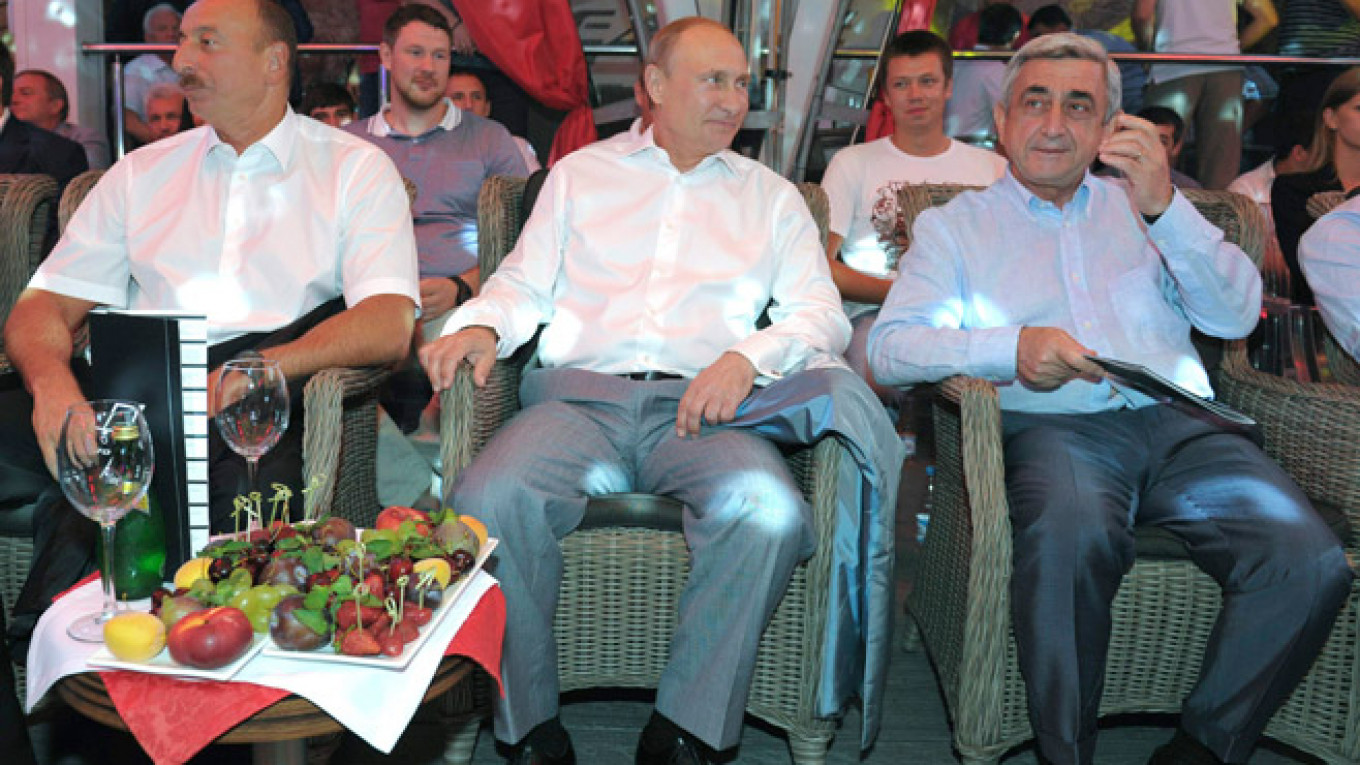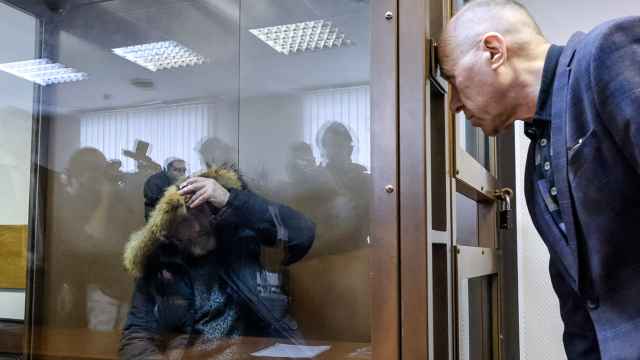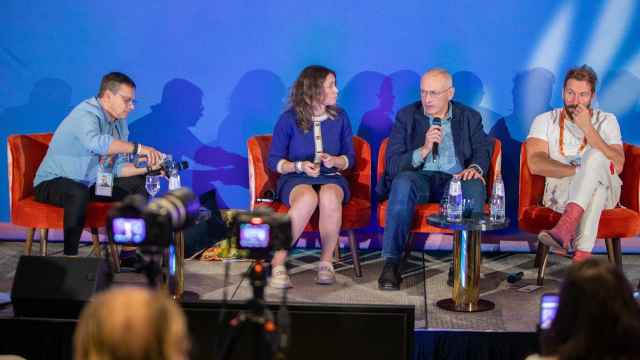As the international community continues to question Russia's desire for peace in Ukraine, President Vladimir Putin hosted the leaders of Armenia and Azerbaijan on Sunday to discuss the recent surge of violence over the contested Nagorno-Karabakh region.
Last week, 19 soldiers lost their lives in clashes between Azerbaijani and Armenian forces, the latest violation of a 1994 cease-fire.
Putin urged Armenian President Serzh Sargsyan and his Azerbaijani counterpart, Ilham Aliyev, to work toward a peaceful resolution of the conflict in the region, which is vastly populated by ethnic Armenians but lies within Azerbaijan's internationally recognized borders.
"There is no greater tragedy than the loss of human lives," Putin told his counterparts, according to a partial transcript of the talks released by the Kremlin on Sunday. "We need to find a solution through patience, discernment and respect for each other."
Putin met with both Sargsyan and Aliyev individually on Saturday in Sochi to discuss their countries' bilateral relations with Russia, as well as the prospect of a trilateral meeting the following day. Both the Armenian and Azerbaijani leaders, who attended a martial arts competition with Putin and Prime Minister Dmitry Medvedev on Saturday night, welcomed Russia's invitation to the discussion table.
Aliyev expressed his hope Sunday that Putin's personal involvement would pump a second wind into peace efforts, according to the Kremlin.
The timing of the trilateral talks could suggest Putin's initiative was geared toward ameliorating Russia's international image, tarnished by the conflict in Ukraine. It could appear at first glance that Putin is trying to showcase Russia's ability to de-escalate tensions in its traditional sphere of influence.
But according to Alexey Makarkin, deputy director of the Moscow-based Center for Political Technologies, Putin's call for trilateral talks should not be interpreted within the framework of the Ukraine crisis but rather within the broader context of Russia's historical role in moderating relations between Armenia and Azerbaijan in the post-Soviet era.
"Of course, Putin is trying to show that Russia is capable of de-escalating tensions, but this is not something new that is related to the current situation in Ukraine or with the country's relations with the West," Makarkin told The Moscow Times on Sunday. "Historically, Russia has played an important role in trying to stabilize the situation [in Nagorno-Karabakh]."
Along with the United States and France, Russia co-chairs the Organization for Security and Cooperation in Europe's Minsk Group, which has supported negotiations for a peaceful resolution of the Nagorno-Karabakh conflict since 1992. Russia also brokered a cease-fire agreement that ended the six-year Nagorno-Karabakh war in 1994.
In recent years, the Russian presidency has also played a central role in promoting a peaceful resolution to the seemingly intractable conflict. Sargsyan and Aliyev met with then-Russian President Dmitry Medvedev in 2008 in Moscow, where the leaders signed an agreement to continue talks on a settlement of the conflict.
See also:
Putin and Merkel Discuss Ongoing Crisis in Ukraine in Phone Call
Contact the author at [email protected]
A Message from The Moscow Times:
Dear readers,
We are facing unprecedented challenges. Russia's Prosecutor General's Office has designated The Moscow Times as an "undesirable" organization, criminalizing our work and putting our staff at risk of prosecution. This follows our earlier unjust labeling as a "foreign agent."
These actions are direct attempts to silence independent journalism in Russia. The authorities claim our work "discredits the decisions of the Russian leadership." We see things differently: we strive to provide accurate, unbiased reporting on Russia.
We, the journalists of The Moscow Times, refuse to be silenced. But to continue our work, we need your help.
Your support, no matter how small, makes a world of difference. If you can, please support us monthly starting from just $2. It's quick to set up, and every contribution makes a significant impact.
By supporting The Moscow Times, you're defending open, independent journalism in the face of repression. Thank you for standing with us.
Remind me later.






